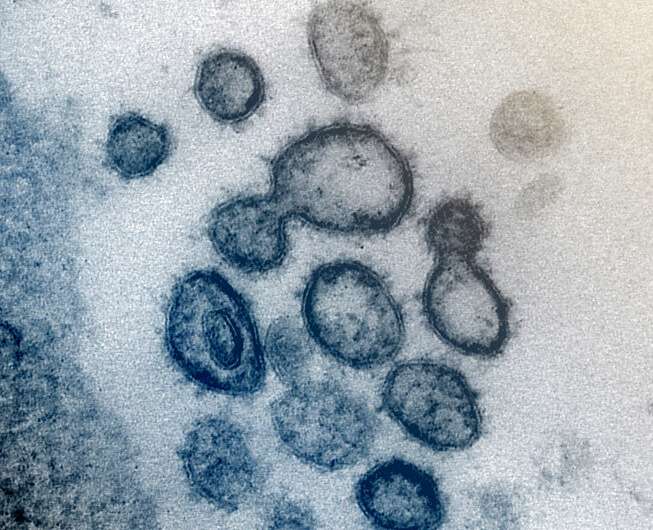A protein that helps to fight viruses can also block lung damage repair

Researchers at the Francis Crick Institute have found that a protein which is initially helpful in the body's immune response to a virus, can later interfere with the repair of lung tissue. The work, published in Science, highlights the need for careful consideration regarding the use of this protein to treat viruses, including coronavirus.
When a virus infects the lungs, the body attempts to defend itself and fight off the infection. One defensive mechanism is the activation of a protein, called interferon lambda, which signals to surrounding lung tissue cells to switch on anti-viral defences.
Interferon lambda is currently being investigated in clinical trials as a potential treatment for COVID-19, so understanding the biology underlying its anti-viral effects is important.
The research team investigated the effects of this protein in the lab and found that if it is active for an extended period, it inhibits the repair of the lung tissue. This could prolong lung damage and increase the risk of subsequent bacterial infections.
The Crick scientists observed that in mice with influenza, having increased levels of this protein in their lungs meant that their epithelial cells multiplied less. These cells make up the lining of the airspaces in the lung and need to multiply to replace damaged cells and repair damage. This was the case for mice treated with the protein experimentally and also mice that had produced the protein naturally, as a result of their response to the virus.
Furthermore, cultures of human lung epithelial cells treated with this protein were also less able to grow.
Andreas Wack, author and group leader of the Immunoregulation lab at the Crick says, "This is a really potent protein with many different functions. At the beginning of a viral infection, it is protective, triggering functions that help to fight the virus. However, if it remains in the tissue for too long, it could become harmful.
"This means, for any anti-viral treatment that uses this protein, there is a really careful balance that must be made. Clinicians should consider the timing of the treatment, the earlier this better, and the duration of treatment."
While this research studied mice infected with influenza, the effects of this protein should be similar for other viruses that also cause lung damage, including coronavirus.
The paper has been published alongside research from Harvard Medical School, which found that severe COVID-19 patients showed strong expression of this protein in their lungs.
Jack Major, lead author and Ph.D. student in the Immunoregulation lab at the Crick says, "Understanding how our bodies respond to infection has never been more important. Differences in our immune responses have huge implications for whether a treatment will work and what the side effects might be.
"Our results suggest that before pursuing treatment with interferon lambda, doctors should consider at what stage of the disease patients are, as treatment late in infection may increase the risk of prolonged damage."
The Crick researchers will continue to study inflammatory pathways in lung infections, including infection with coronavirus.
More information: 'Type I and III interferons disrupt lung epithelial repair during recovery from viral infection' Science (2020). science.sciencemag.org/lookup/ … 1126/science.abc2061



















